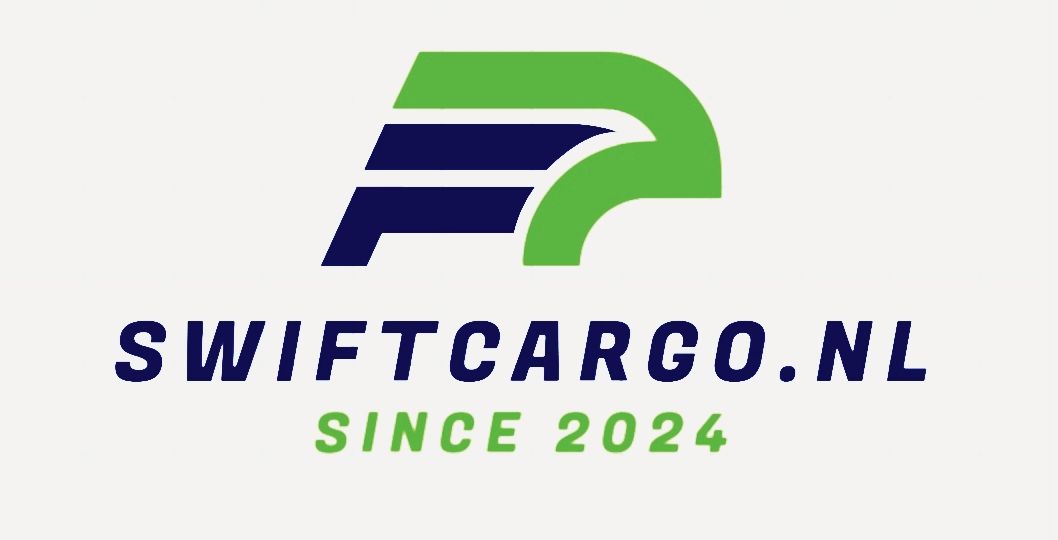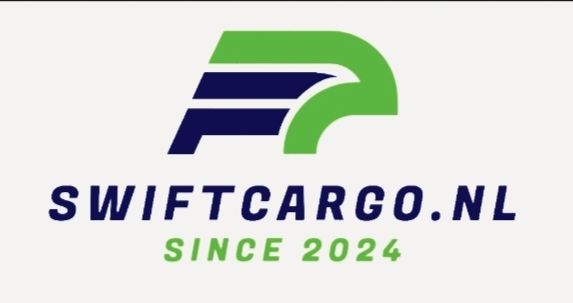TERMS AND CONDITIONS
New General Terms and Conditions for courier services
Article 1, Definitions
In these conditions, the following definitions apply: AVC: General Transport Conditions 1983, as last established by the StichtingVervoeradres and filed at the registry of the Arrondissementsbank in Amsterdam and Rotterdam. CMR: Convention concerning the contract for the international carriage of goods by road (Geneve 1956). Courier: the person who has committed himself to the sender to transport a shipment and deliver it to the addressee as soon as possible, whereby the delivery time or the delivery period within which the shipment must in any case be delivered is agreed upon with the order. Shipment: an item or the set of items that are transported simultaneously and are intended for a recipient. Sender: the contractual counterparty of the courier. Recipient: consignee or (co) resident or subordinate working at the delivery address to whom the courier must deliver the shipment. Force majeure: a circumstance that a careful courier could not have avoided and the consequences of which such a courier could not have prevented.
Article 2, Scope
In addition to these conditions, the AVC applies to domestic courier services, insofar as these conditions do not deviate from them. The CMR applies to cross-border courier services, as well as the provisions of these conditions that do not conflict with the CMR.
Article 3, Obligations of the courier
The courier is obliged to receive the agreed shipment at the agreed place and time. If the courier does not comply with the obligations referred to in paragraph 1, the sender has the right, without prejudice to his right to claim damages, to immediately terminate the agreement. The courier is obliged to deliver the shipment to the recipient no later than the agreed time or within the agreed period. Article 16 AVC regarding delay does not apply.
Article 4, Obligations of the sender
The sender is obliged to comply with customs and other formalities that must be completed before delivery of the goods, to attach the necessary documents to the consignment note and to make them available to the courier and to provide him with all necessary information.
Article 5, Shipment damaged but contents still usable
If the shipment received by the courier is not delivered in the same condition as in which he received the shipment, but its contents can still be used for the purpose for which it was intended, the courier is obliged, except for force majeure, to repair the damage to the shipment. to be reimbursed up to a maximum of Euro 453 per shipment. Shipment damaged and contents no longer usable or shipment defective If the shipment received by the courier is not delivered to its destination or is not delivered in the same condition as in which he received the shipment, as a result of which the contents of the shipment can no longer be used for the purpose for which it was intended, the courier is obliged, except in cases of force majeure, to compensate the damage caused thereby, taking into account the following amounts: - For damage to the shipment itself, a maximum of Euro 453 per shipment; - For damage due to The shipment can no longer be used for the purpose for which it is intended, a maximum of 2x the freight. The agreed freight is also not due. Freight already paid must be refunded as unpaid. Delay if the shipment is delivered after the agreed time or after the agreed period has expired, except in cases of force majeure, the agreed freight price is not due. Freight already paid must be refunded as unpaid. If the sender and/or the addressee has suffered damage as a result, other than damage to the shipment, the courier is obliged to compensate that damage up to a maximum of twice the agreed freight. If the shipment is also damaged, the courier is, Except for force majeure, it is also liable for damage to the shipment itself up to a maximum of NLG 1,000 per shipment. The burden of proving damage rests with the sender and/or recipient. When applying paragraph 3 of this article, the courier an appeal to force majeure is not permitted in the event of: physical and mental unfitness of the driver of the vehicle; the defectiveness and unsuitability of the vehicle and the material used by the courier; foreseeable traffic congestion and/or traffic density.
Article 6. Article 5 does not apply to cross-border transport.
ExplanationArticle 5 of these conditions increases the liability of the courier compared to the liability laid down in Book 8: 1102 New Civil Code. Under this article, this increase in liability is void unless article 5 of these conditions is recorded in a separate document containing the contract of carriage. That separate document par excellence is the bill of lading. It is advisable to copy the text of Article 5 verbatim on the consignment note, in addition to the reference clause to these conditions.
Transport and logistics Netherlands General Payment Terms and Conditions
These conditions regarding the payments for transport, storage and other logistics activities assigned to the carrier, established by Transport and Logistiek Nederland, filed with the registry of the District Court in The Hague on October 1, 1993, deed number 238.
Article 1 – PAYMENT
1. In the case of a stamped shipment, the freight and other costs relating to the goods are due and payable at the time that the sender/client hands over the consignment note to the carrier, or at the time that the carrier accepts the order.
2. If postage-free shipment has been agreed, the consignee is obliged to pay the freight, other costs incurred in connection with the transport and other costs incurred by the goods upon receipt of the goods; If he does not comply with this upon first reminder, the sender/client is jointly and severally liable for payment with him.
3. If the carrier - other than in the case of unpaid shipment - at the request of the sender/client, charges the freight, the costs owed on other grounds relating to the transport and other costs burdening the goods with regard to the transport carried out to the consignee or a third party, the sender/client remains obliged to pay these amounts if the consignee or the third party does not pay them on the first reminder.
4. If the carrier sends an invoice, the debtor is obliged to pay it within 14 days of the invoice date.
5. Invoices are deemed to have been accepted and approved by the debtor if the carrier has not received a written objection within eight days of the invoice date.
6. If the debtor is in default, he is obliged to pay the statutory interest in addition to the principal sum.
7. Any payments will first be deducted from the interest due and then from the principal amount.
Article 2 – COMPENSATION
The sender/client is not entitled to set off debts with regard to amounts charged by the carrier under any agreement concluded with him, unless the carrier has acknowledged the claim in writing.
Article 3 – COLLECTION
1. The carrier is entitled to charge all necessary extrajudicial and judicial costs for collection to the person who is obliged to pay. The extrajudicial costs, with a minimum of 15% of the principal amount, are only due from the moment the debtor is in default and the claim has been outsourced.
2. The invoice from the relevant lawyer, bailiff or collection agency serves as proof of the amount of the extrajudicial costs.
Article 4 – RIGHT OF RETENTION
1. The carrier has a right of retention on goods and documents in his possession in connection with the contract of carriage against anyone who requires delivery thereof. However, he is not entitled to this right vis-à-vis a third party if, at the time he received the goods for carriage, he had reason to doubt the authority of the sender/client to make the goods available for carriage to that third party.
2. The carrier may exercise the right of retention against the sender/client or the recipient/consignee on goods, funds and documents for what is or will become due to him with regard to the transport of the goods.
3. He can also exercise this right for amounts charged to the goods by way of cash on delivery.
4. The carrier may also exercise the right of retention granted in paragraphs 2 and 3 for what is still owed to him by the sender/client in connection with previous contracts of carriage.
5. As long as the goods have not arrived at their destination, the carrier has the right to demand that the sender/client provide security for the freight and all claims he has or will have against the sender/client. get it and he has it
6. right to postpone the departure of the means of transport or to suspend transport once it has started as long as his claim for security has not been met.
7. The carrier is never liable for any damage resulting from a postponement or suspension as referred to above.
Article 5 – RIGHT OF LIEN
1. All goods, documents and funds that the carrier has or will receive for whatever reason and for whatever destination serve as collateral for all claims that he has against the sender/client or the owner. was allowed to receive.2. If the claim is not settled, the collateral will be sold publicly or by private sale, if agreement has been reached after the authority to sell has arisen.
Article 6 – SUBSTITUTE SECURITY/DELAY OF PAYMENT
1. The debtor can never rely on the carrier against a deferral of payment, whether expressly granted or not, with regard to previous orders, which exceeded the term of 14 days.2. If the sender/client, or a third party on behalf of the sender/client, provides an irrevocable bank guarantee accepted by the carrier for the claims referred to in paragraph 5 of Article 4 (suspension) and paragraph 1 of Article 5 (pledge), all rights the carrier has to lapse in accordance with the provisions of Article 4 (retention and suspension) and Article 5 (pledge).
Article 7 – ADDRESS CHANGES
1. The sender/client is obliged to keep the carrier informed of the address at which he can be reached.2. Any damage resulting from the sender/client's failure to comply with the obligation under paragraph 1 will never be borne by the carrier.
Article 8
These conditions can be referred to as the 'Transport and Logistics Netherlands general payment conditions'.
a








